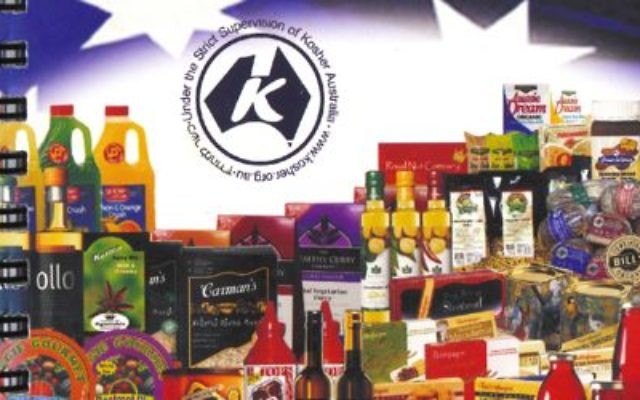Federal Government rejects supreme kashrut authority
CONCERNS that a Federal Government inquiry into food labelling could result in the effective creation of a supreme kashrut authority in Australia have proved unfounded.
CONCERNS that a Federal Government inquiry into food labelling could result in the effective creation of a supreme kashrut authority in Australia have proved unfounded.
In May last year, the Organisation of Rabbis of Australia (ORA) and the Executive Council of Australian Jewry submitted a proposal to the Government, suggesting ORA be given the legal right to endorse individual kashrut authorities, setting the guidelines they must adhere to.
Those not receiving an endorsement would be denied the right to issue hechshers (kosher licences) to shops, restaurants or particular food items.
The submission was put forward in response to the Government’s Issues Consultation Paper on Food Labelling Law and Policy Review, which asked whether there was a need to establish agreed definitions of terms such as “halal” and “kosher”, and if so, whether the definitions should be included or referenced in the Food Standards Code.
The single-authority model caused some disquiet, particularly from Progressive Jews who felt they had not had any input into the submission, and that the definitions of kashrut by a unilateral kashrut body might be too narrow.
However, the final report of the Issues Consultation Paper on Food Labelling Law and Policy Review, which was released last week to health minister Catherine King, instead indicated broad support for self-regulation.
Urging food industries to adopt “a responsive and more structured self-regulatory approach”, it recommended “a more prescriptive mode of regulation” where self-regulation was not working.
The outcome was welcomed by Rabbi Gary Robuck, Chairman of the Moetzah (Council of Progressive Rabbis, Australia, New Zealand and Asia). “From the heated debate that took place recently between different Orthodox authorities in Australia, it is clear that there are different approaches to this issue and we feel that it is appropriate for different groups to follow the recommendations and standards stated by their own leadership,” he said.
“In kashrut as in politics, one-party rule is not healthy nor will it always reflect the will of all the people. Self-regulation is, undoubtedly, the best way as it respects the ability of the consumer to choose.
Despite the proposal being passed over, ORA was upbeat about the report.
Rabbi Meir Shlomo Kluwgant, chair of ORA’s kashrut subcommittee, emphasised that the submission had only been made in response to a request by the inquiry to come up with alternative plans where self-regulation was not working and that ORA supported the present system of self-regulation.
Rabbi Kluwgant said: “As we put in our submission, we are in favour of the self-regulatory approach which has served our community well for a number of decades. ORA is pleased that this has been recognised in the final report,” Rabbi Kluwgant said.
However, he added the concept of a single kashrut authority was “not off the table”, and would be discussed at future meetings of ORA’s kashrut subcommittee.
PETER KOHN


comments